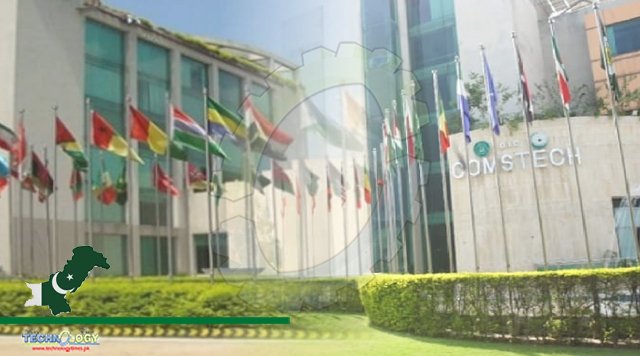Strong public support for science was cited by speakers as being crucial for survival of scientific enterprise during the current economic crisis.

Strong public support for science was cited by speakers at the opening session of the three-day COMSTECH International Conference/Workshop on “Science Communication and Community Engagement” as being crucial for the survival of the scientific enterprise during the current economic crisis.
The acting Chief Justice of the Federal Shariat Court of Pakistan, Mr. Justice Dr. Syed Muhammad Anwer, was the special guest of honour at the opening ceremony. In his address, he said that as Muslims, we have a religious obligation to learn and to educate future generations.
Science communication, which is the practise of informing, educating, and raising awareness of science-related topics in a community, is considered necessary for fulfilling this obligation and is also a religious obligation, according to the speaker. The holy Quran, he claimed, is a manual for living in harmony with nature rather than a book of science.
He claimed that the Quran teaches us to investigate the cosmological scientific realities and principles pertaining to our own selves, the climate and environment in which we live, and the universe in general. He claimed that the Quran encourages us to engage in scientific study in order to discover the universe’s underlying scientific principles.
He claimed that Allah had provided us with a framework for contemplating the orderly operation of the cosmos. According to Dr. Muhammad Anwer, it is our religious obligation to pursue science with tenacity and persistence in order to discover the scientific principles at work in the world. He claimed that, as a whole, Muslims are not living up to the obligation Allah placed on us in the Quran to acquire, possess, and advance scientific education in our societies.
Speaking at the workshop on “Science Communication and Community Engagement, Prof. Dr. M. Iqbal Choudhary, Coordinator General of COMSTECH, announced that speakers from seven nations with extensive backgrounds and significant contributions to science communication will address this conference. He revealed that over 460 people from a variety of backgrounds, including science, media, policymakers, social work, arts and cultures, diplomacy, and the environment, had registered to attend this conference.
He said that although we frequently think of science and society as existing in completely different worlds, this is not the case. They are interconnected naturally because they are two sides of the same coin.
Science needs social and political support, while society benefits from scientific discoveries and values. None can thrive or survive without the other. He argued that strong public support for science is essential for the continued success of the scientific enterprise during economic downturns. Professor Choudhary came to the conclusion that society must direct science rather than the other way around.
He said, “Science should serve the interests and needs of society, and society should help determine how its resources are deployed to fund scientific work, encouraging beneficial research and discouraging others.”
Prof. Dr. Syed Javaid Khurshid, the conference’s associate coordinator, gave a thorough introduction to the event and stated that its main goal is to build a bridge between scientists and journalists in order to raise public awareness. Michael Wadleigh, the conference’s coordinator and an Oscar-winning filmmaker, spoke on “UNESCO open data to stop the global social and economic collapse” in the opening session.
The Director of the Malaysian Biotechnology Information Center (MABIC), Dr. Mahalectchumy Arujanan, spoke on the topic of science communication as a strategy for future global crisis preparedness, and Additional Secretary of the Ministry of Foreign Affairs, Kamran Akhtar, discussed the “Role of science communication in international diplomacy.”